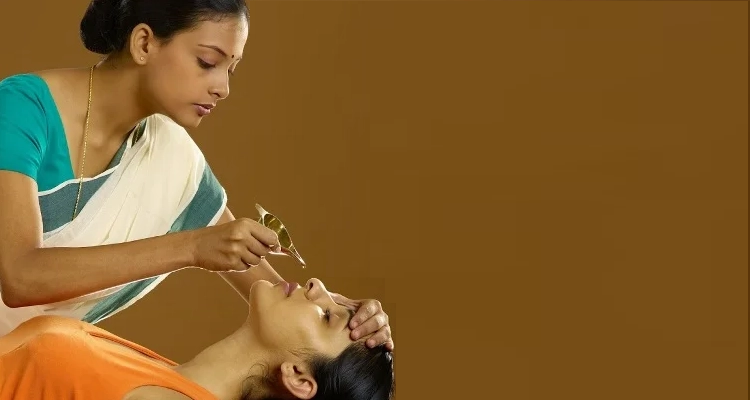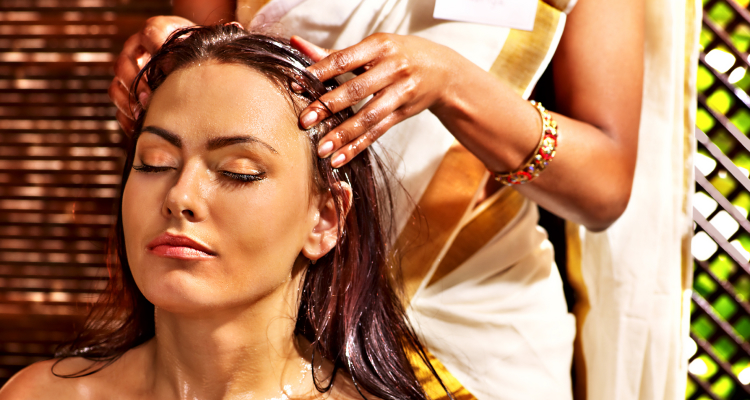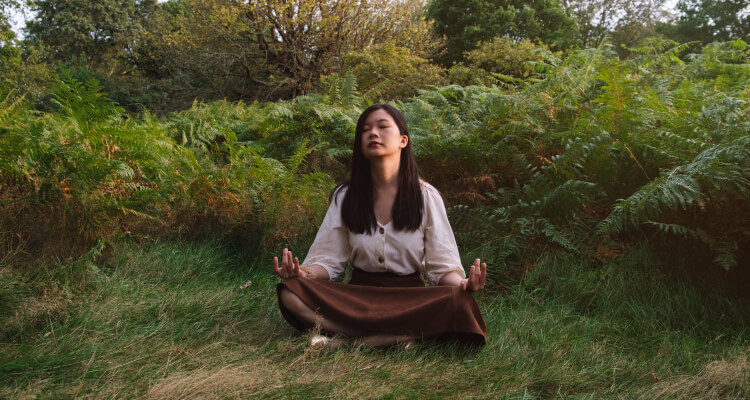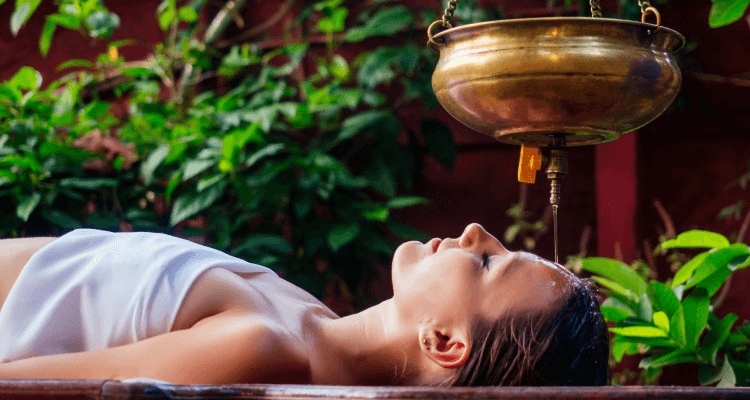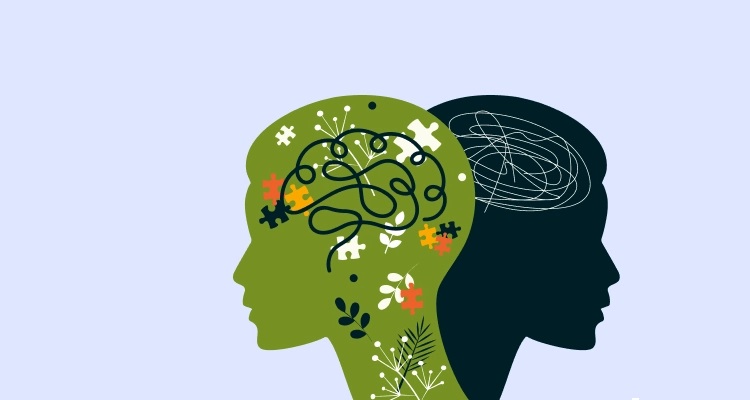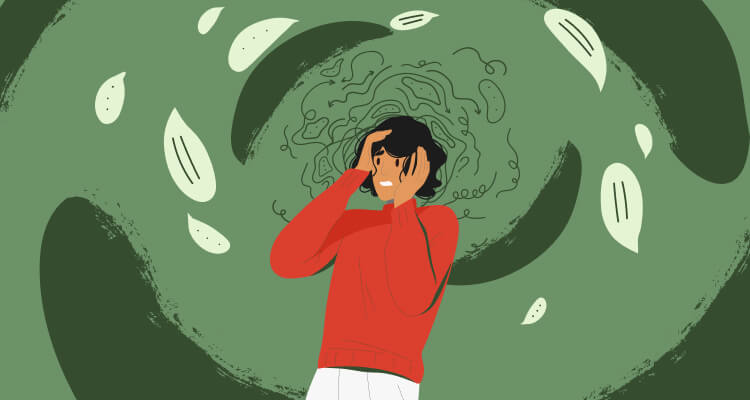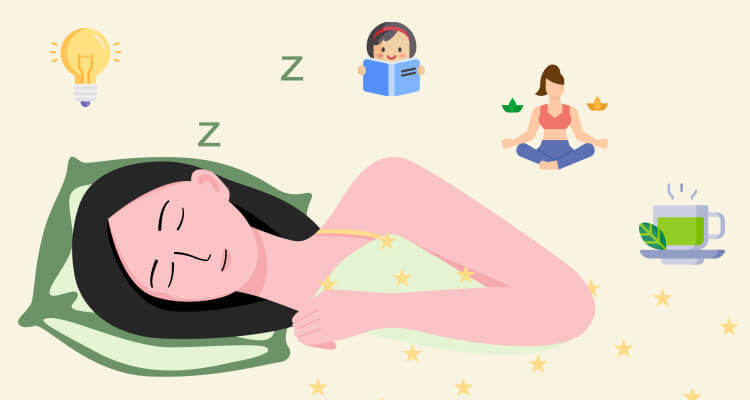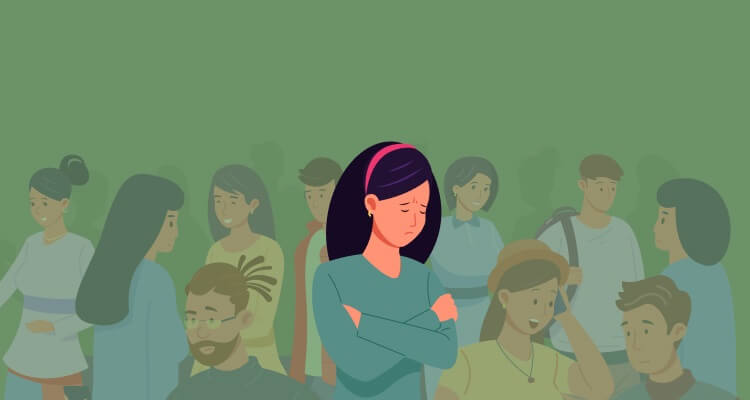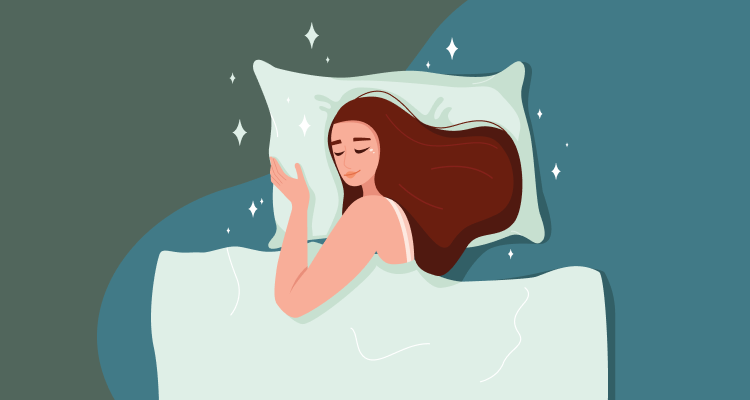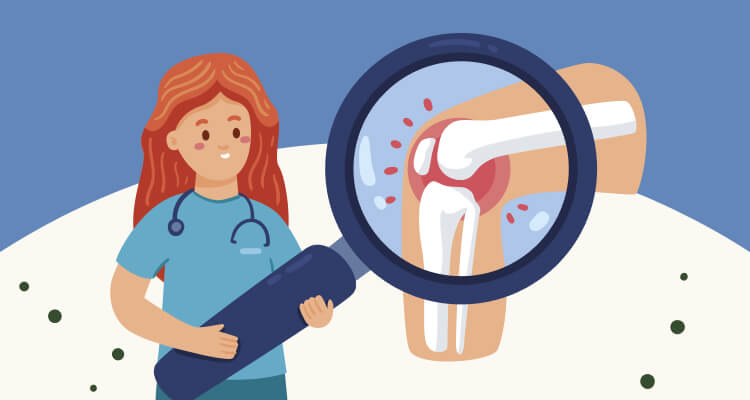What You’ll Learn in this blog
- How to spot the early warning signs of anxiety that you might be missing
- Mental, physical, and psychological symptoms to watch out for
- Simple Ayurvedic tips for recognizing these signs and what steps to take next
- When should you consult a doctor
Feeling nervous or stressed, from time to time, is a natural response to life’s stressors, whether it’s a big presentation at work, a major life event, or an unexpected challenge. These occasional bits of stress are a part of navigating life’s ups and downs. However, if your stress is not just occasional but persistent and overwhelming, it might be more than just a temporary reaction.
When stress becomes more than just a fleeting feeling and starts to interfere with your daily life, it could be a warning sign for anxiety. Persistent anxiety might seem out of proportion to the actual threat and can show up as constant worry, fear, or even sudden panic attacks. These feelings can disrupt your routine, make it hard to focus, and lead you to avoid situations to escape these intense feelings.
So, you need to recognize when anxiety is more than just temporary stress. Spotting the early signs can help you address them before they get worse.
Stress vs. Anxiety: What’s the Difference?
Stress and anxiety are often used interchangeably, but they are distinct experiences. Understanding their differences can help you manage your feelings more effectively.
Stress is a natural reaction to external pressures or challenges. For instance, when you face a deadline at work or a busy schedule, your body responds with a stress reaction, which might include a racing heart or increased alertness. Stress is usually short-term and tied to specific events. Once the stressor is resolved, the stress typically subsides.
Anxiety is more than just a reaction to stress. It involves persistent feelings of fear or nervousness that can linger long after the initial stressor has passed. Anxiety becomes a disorder when it lasts for more than two weeks and starts to interfere with your daily activities, causing severe symptoms.
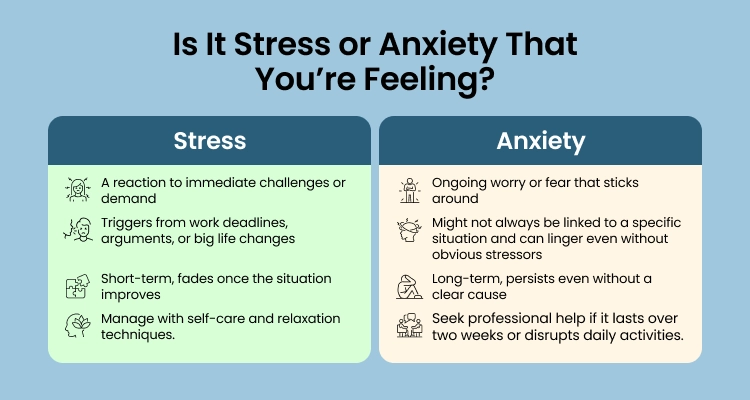
Making it simpler for you: While stress is a temporary response to a particular situation, anxiety is a more prolonged and pervasive feeling that requires different strategies for management and treatment. Stress can often be managed at home with techniques like mindfulness, exercise, and healthy routines. However, anxiety typically requires a more comprehensive approach under the guidance of an expert, combining holistic practices and medications.
Key Early Warning Signs of Anxiety
Recognizing early signs of anxiety is crucial for managing it effectively before it worsens. Let’s see the common symptoms and how they might present:
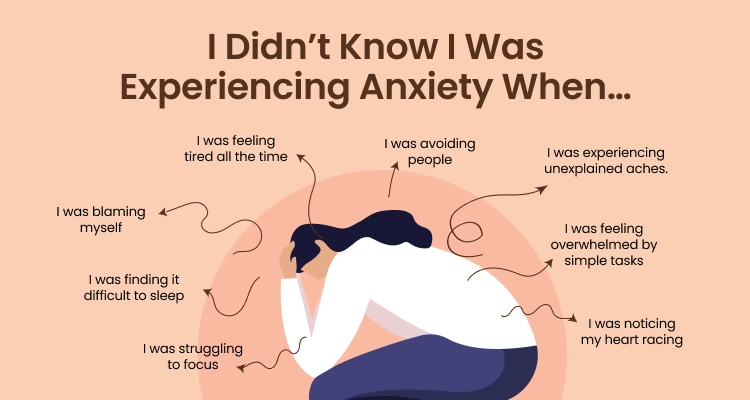
Mental Signs of Anxiety
Anxiety often starts in the mind, manifesting as persistent worries, racing thoughts, and difficulty concentrating. These mental signs can be subtle at first but gradually take a toll on your daily life.
- Persistent Worry
Do you find yourself constantly worrying about things like work, health, or relationships, even when there’s no immediate reason to?
If this worry lasts for more than two weeks, it could be more than just regular stress— it could indicate generalized anxiety disorder (GAD). Such constant mental strain can make it challenging to focus on daily tasks and diminish your overall quality of life.
Racing Thoughts
Ever feel like your mind is running a marathon like there is a continuous stream of racing thoughts?
When you’re dealing with anxiety, your thoughts can race at a million miles an hour, jumping from one worry to the next, making it tough to concentrate or feel at ease. It can be overwhelming and make it hard to concentrate or relax, creating a sense of mental chaos.
- Difficulty Concentrating
Is it getting harder to focus on tasks or make decisions?
Anxiety can preoccupy your mind, filling it with persistent worries that crowd out everything else. It can make it difficult to get things done or fully engage in activities you usually enjoy.
Physical Signs of Anxiety
Anxiety impacts not only your mind but also manifests in physical symptoms throughout your body. From increased heart rate and muscle tension to sleep disturbances, these physical signs can be hard to ignore and might be more common than you think.
- Tremors
Notice any trembling in your hands or other parts of your body?
Anxiety can cause physical symptoms like shaking or tremors, which are generally the direct response to the body’s heightened stress levels and can make even simple tasks feel challenging.
- Increased Heart Rate
Feeling your heart race, even when you’re just sitting still?
Often known as palpitations, it is your body’s way of responding to stress, even if there’s no real danger around, creating a sense of panic or unease.
Chest Tightness
- Do you ever feel like there’s a weight on your chest?Anxiety can cause this feeling of pressure or tightness, which can be alarming and sometimes mistaken for something more serious, such as a heart problem.
- Rapid Breathing
- Are you finding yourself breathing faster than usual, especially when you’re stressed?Also known as hyperventilation, rapid breathing is a typical physical response to anxiety. It can make you feel dizzy or lightheaded, adding to your worries.
- Muscle Tension
- Are your muscles constantly tense, especially your neck, shoulders, or jaw?
Chronic muscle tension, such as tightness in the neck, shoulders, or jaw is often a sign of prolonged stress and anxiety, leading to discomfort and even pain over time.
- Fatigue
- Is getting a good night’s sleep becoming harder and harder?
Difficulty falling asleep, staying asleep, or experiencing restless sleep can be closely linked to anxiety. The ongoing mental and emotional strain can deplete your energy levels, leaving you feeling drained and less capable of handling daily tasks. These sleep disturbances can create a vicious cycle where lack of rest worsens anxiety, making it harder to manage the following day.
Psychological Signs of Anxiety
Emotionally, anxiety can leave you feeling disconnected from things you once loved, more irritable than usual, and struggling to keep up with daily life. It’s important to recognize these feelings as they can significantly impact your overall well-being.
- Avoidance of Enjoyable Activities
- Have you stopped doing things you used to love?Whether it’s hanging out with friends, pursuing hobbies, or just relaxing, avoiding these activities could be a sign of anxiety. The discomfort or fear associated with these situations can lead you to withdraw, which might only make your anxiety worse.
- Significant Distress
- Is anxiety starting to mess with your daily life—like your job, relationships, or other important areas?When it begins to cause significant distress, that’s a clear sign that it’s more than just normal worry. You might find it harder to keep up with responsibilities or enjoy social interactions, which can make life feel even more overwhelming.
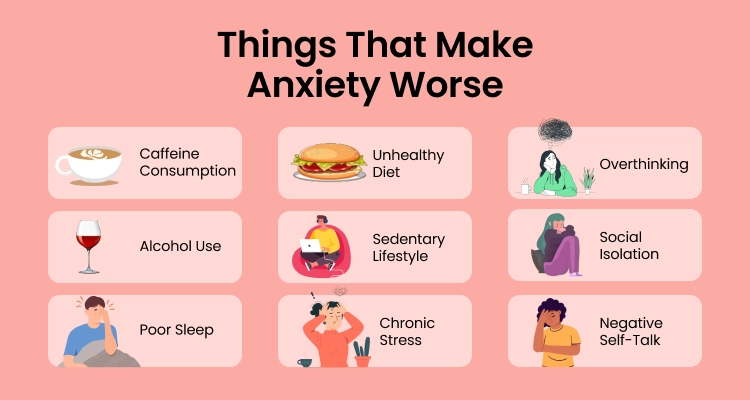
How Ayurveda Addresses Anxiety?
In Ayurveda, anxiety is considered as ‘chittodwega,’ which means unwanted fear of the mind. It is caused by a disruption in the balance of vital energy (vata dosha) and leads to the depletion of bodily tissues.
While fear (Bhaya) is a response to immediate threats, anxiety concerns imagined future events and their potential impact on one’s life. It affects mental health (Rajas-a mental dosha) along with Vata and Pitta, resulting in changes in behavior.
Ayurvedic treatments for mental distress and anxiety (Chittodwega), focus on:
Rational use of therapies and remedies (Yuktivyapashraya)
Faith-based practices for mental support (Daivavyapashraya)
Traditional psychotherapies to stabilize the mind (Satvavajaya)
To prevent relapse, Ayurveda suggests using nootropic herbs for mental clarity (Medhyarasayanas) along with Yoga (Pranayama and Asanas).
Simple Ayurvedic Tips to Ease Anxiety in Daily Life
Incorporating Ayurvedic practices into your daily routine can significantly help in managing anxiety and enhancing overall well-being. Follow these steps in sequence to promote a balanced and peaceful state of mind:
1. Start Your Day with a Smile: Begin each day with a smile to uplift your mood and set a positive tone for the day.
2. Follow Dinacharya (Daily Routine): Establish a consistent daily routine that includes regular sleep, meals, and self-care practices to create stability and balance in your life.3. Organize Your Day: Plan and prioritize tasks to reduce feelings of overwhelm and increase productivity.
4. Practice Breathing Exercises:
- Alternate nostril breathing (Anuloma-Viloma) to calm and balance the mind.
- Skull-shining breath (Kapalabhati) to energize and clear mental fog.
- 5. Engage in Yoga Asanas:
- Mountain Pose (Tadasana): Ground yourself and improve balance.
- Tree Pose (Vrikshasana): Enhance concentration and inner calm.
- Seated Forward Bend (Paschimottanasana): Relieve tension and promote relaxation.
- Standing Forward Bend (Padahastasana): Calm the mind and stretch the spine.
- 6. Practice Guided Meditation (Yoga Nidra): Engage in this guided meditation to deeply relax and rejuvenate the mind and body. 7. Apply Oil to the Head: Use soothing herbal oils for a calming head massage to reduce stress and promote relaxation.
8. Engage in Gratitude Meditation: Reflect on what you’re grateful for to shift focus from stress to positivity and foster a sense of contentment.
9. Prayer: Incorporate a prayer or positive affirmation into your routine to set a peaceful tone and strengthen your inner resilience.
Ayurvedic Therapies for Anxiety
Ayurveda offers several effective therapies for managing anxiety, particularly through the use of medicated oil applied to the head (Moordhini Taila Prayoga), which involves the application of medicated oil to the head. It includes a range of treatments designed to soothe the nervous system and promote mental clarity.
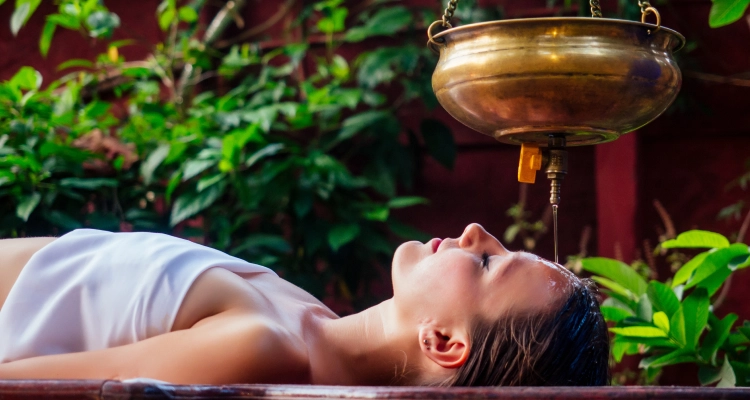
Key therapies in this category are:
1. Shirodhara: It is a therapeutic treatment that involves the gentle, continuous pouring of warm herbal oil
(Moordhini Taila) over the forehead. The rhythmic flow of oil helps balance the doshas, calm the mind, alleviate stress, and, leading to a profound sense of relaxation and mental tranquility.
2.Shirovasti: In Shirovasti, a special cap is placed on the head, and medicated oil is poured into it, allowing the oil to remain in contact with the scalp for a specified duration. It helps in nourishing the nervous system, reducing anxiety, and enhancing overall mental well-being.
3. Shiropichu: It involves placing a cloth soaked in warm medicated oil on the vertex . The oil is kept in place for a period, allowing it to penetrate and soothe the mind. Shiropichu is particularly beneficial for reducing mental stress and improving focus and clarity.
4. Shiroabhyanga: A therapeutic head massage using Moordini Taila, Shiroabhyanga helps relieve tension from the scalp and shoulders. The massage improves blood circulation, calms the nervous system, and promotes a sense of relaxation and mental peace. - Panchakarma Panchakarma is a foundational Ayurvedic treatment designed to detoxify and rejuvenate both body and mind. It is particularly effective for managing anxiety by addressing imbalances and restoring dosha harmony.The therapy includes five key procedures, each targeting different aspects of health:
1.Therapeutic Emesis (Vamana): It induces controlled vomiting to remove excess Kapha dosha, which can lead to feelings of heaviness and sluggishness. By cleansing the upper gastrointestinal tract, it helps improve mental clarity and reduce anxiety.
Purgation Therapy (Virechana): The therapy uses herbal laxatives to cleanse the lower gastrointestinal tract, balancing Pitta dosha. Since serotonin synthesis occurs primarily in the gut, improving gut health can positively impact mood and mental well-being, thus alleviating stress and anxiety.
Medicated Enema (Basti): It involves administering herbal enemas to detoxify the colon. The colon, often referred to as the “second brain” due to its role in neurotransmitter regulation, benefits from this therapy by improving digestion and overall vitality, which can help in reducing anxiety.
Nasal Administration (Nasya): Itinvolves applying medicated oils or powders through the nasal passages to clear toxins from the head and neck area. This therapy helps alleviate mental tension and promotes relaxation.
Bloodletting Therapy (Raktamokshana): The bloodletting therapy purifies the blood and balances doshas. By addressing deep-seated imbalances, this therapy contributes to reducing anxiety and improving mental health.
Through these Panchakarma treatments, the body is detoxified, and the mind is calmed. By improving gut health and balancing doshas, Panchakarma offers a comprehensive approach to managing anxiety and promoting overall well-being.When to Consult an Ayurvedic Expert for Anxiety
Consulting an Ayurvedic expert can be especially beneficial if you’re experiencing persistent anxiety or if it impacts your daily life. Consider seeking Ayurvedic guidance if you notice the following:
Persistent Symptoms: If anxiety persists for weeks or months and does not improve with self-care, an Ayurvedic practitioner can offer specialized support.
Impact on Daily Life: When anxiety disrupts daily activities, work, or relationships, professional help can provide tailored strategies to manage it effectively.
Preference for Natural Remedies: If you prefer natural treatments over conventional medications, Ayurveda provides herbal remedies, dietary advice, and lifestyle modifications for managing anxiety.
Interest in Holistic Approaches: For a comprehensive approach that considers mind, body, and spirit, Ayurveda can create personalized treatment plans that support overall well-being.
Ineffectiveness of Previous Treatments: If other treatments (such as therapy or medications) are ineffective, Ayurveda might offer new perspectives and solutions.
Family History of Anxiety: If anxiety or related disorders run in your family, consulting an Ayurvedic expert can help you understand your predisposition and explore preventive strategies.
Seeking Preventive Care: For proactive mental health management and preventing anxiety from developing or worsening, Ayurveda can help establish a strong foundation for well-being.
At LYBL, we blend traditional wisdom with modern science to provide personalized wellness solutions. If you’re struggling with persistent symptoms, severe physical effects, or finding it difficult to manage anxiety through self-help methods, consulting an Ayurvedic professional can be invaluable. Our approach focuses on expert consultations, customized yoga sessions, and evidence-based supplements to address both the root causes and symptoms of anxiety, supporting your holistic health journey.

